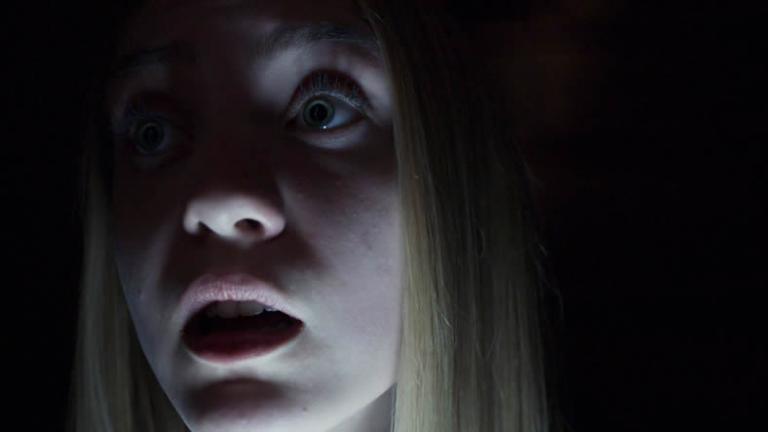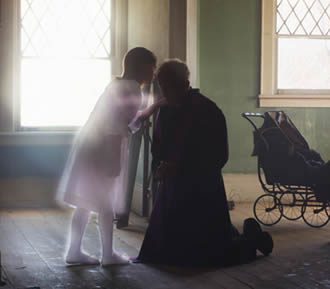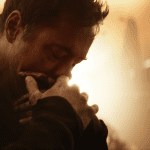
I’m a sucker for haunted house stories. Nothing gives me goosebumps like a movie filled with dark hallways, creepy attics and maybe a secret panel or two. Ghosts seem to have an affinity with run-down Victorian mansions.
Wraith, out on video today, gives us a picture-perfect haunted house. But the ghost who takes up residence here is decidedly a different sort of spirit—and one that carries in its spectral hands a decidedly pro-life message.
Michael Sajbel, Wraith’s writer and director, didn’t necessarily set out to make a pro-life movie. But when you’re a storyteller, he says that your own story has a way of sneaking in.
“Who you are and what you bring to a film project will come through,” he says. “You can take all the editors in the world and great composers and all of that and try to put lipstick on [a project], but ultimately, your personality will leach through.”

Sajbel has been involved in a variety of movies, both Christian and secular. He cut his teeth in Billy Graham’s World Wide Pictures and has gone on to direct both high-profile Christian works (including One Night With the King featuring the legendary Peter O’Toole) and more secular stories (such as The Ultimate Gift with James Garner, Abigail Breslin and Lee Meriwether).
And while Sajbel’s not done much work in horror, Wraith’s creepy atmospherics show that the guy knows his way around a haunted house. He says that, as a kid growing up in Wausau, Wisconsin, he’d go two triple- and quadruple horror features every Friday the 13th, where movies like Boris Karloff’s Die, Monster, Die and old Hammer films would play. “Nowadays, I look at them and I see bad miniatures and horrible process photography and all that,” he says. “But back then I just loved ’em.”
He moved away from horror for a while, but he rediscovered it again during one rainy day in Los Angeles. Unable to film in the drizzle, he stumbled into a re-release of The Exorcist. It rekindled his appreciation for the genre.
“There’s a debate as to whether Christians should view horror or whether they should participate at all,” Sajbel acknowledges. But he notes that a number of Christians are involved in the business, and it’s true. Scott Derrickson, director of The Exorcism of Emily Rose, is an outspoken Christian. I’ve interviewed Chad and Carey Hayes, who wrote The Conjuring movies, and both say they gravitate toward horror because it allows them to talk about faith. Even William Peter Blatty, writer of the novel The Exorcist, said he intended the story to be a “sermon that no one could possibly sleep through.”
Sajbel doesn’t love all horror: He has no time for torture-predicated flicks like Saw or movies intended to just gross you out. “I don’t poison my mind in advance with things that I know are not good for me,” he says. But Sajbel believes that frightening, supernatural films can reflect larger truths. “The Bible does talk about the unseen war between good and evil and powers and principalities and things like that,” he says. “So [horror movies can reflect] a bit of reality if you want to call it that.”

Wraith takes those unseen realities and adds another twist: The spirit in the house isn’t so much a symbol of death as she is a protector of life—including, in a round-about way, her own.
“It wasn’t necessarily intended to be pro-life, and it wasn’t intended to be anti-abortion, but that’s where it went,” the director says. “If a spirit is fighting to stay alive and even become a member of the family, we can’t deny it its rights … I think in the end you can look at this as an allegory. We as people think we have the power over life and death, particularly in pregnancy, and once all the pieces fell together, yes, sure, it’s absolutely life-affirming. No question about it. I’m unafraid and unabashed about that.”
But Sajbel insists that Wraith isn’t about just hammering viewers over the head with a message: It is, simply, a story that Sajbel wanted to tell.
“If you look at the film through the lens of modern politics which is so divided and so polarized, there will be people who don’t like this movie, because they’ll think it’s just about an agenda,” he says. But … one reviewer said [this movie] is story driven, not agenda driven. I consider that a high compliment.”
Wraith is available on a wide variety of video platforms beginning today. You can also get it on Blu-Ray and DVD.













